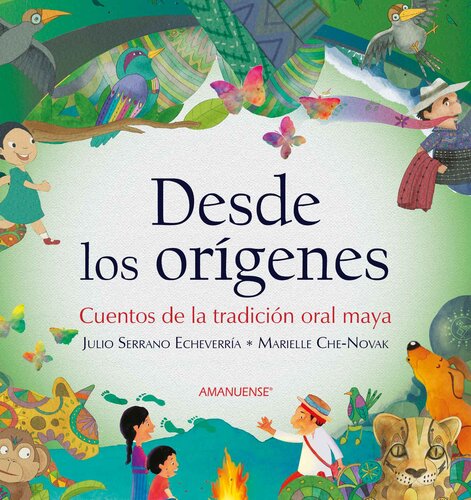oleebook.com
Las propiedades de la sed de Marianne Wiggins
de Marianne Wiggins - Género: Ficcion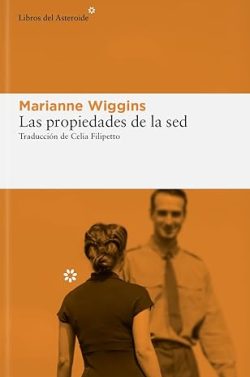
Sinopsis
Una épica historia de amor ambientada en California durante uno de los episodios más oscuros de la segunda guerra mundial. «Una obra maestra.» The New York Times Rocky Rhodes lleva años protegiendo con uñas y dientes su rancho de California frente al Departamento de Aguas de Los Ángeles que está drenando sus acuíferos. Es en ese rancho del valle de Owens donde su mujer y él criaron a sus hijos gemelos, Sunny y Stryker, y donde Rocky ha llorado a su esposa desde su muerte. Cuando Estados Unidos entra en la segunda guerra mundial, el gobierno decide construir en el valle uno de los campos de internamiento en los que confinará a los más de cien mil ciudadanos de origen japonés que viven en los estados de la costa del Pacífico. El director del campo, un chico judío de Chicago, quedará fascinado por la familia Rhodes, especialmente por la joven Sunny. Las propiedades de la sed es una inolvidable novela sobre uno de los episodios más oscuros del pasado estadounidense, pero también es una historia de amor: el de una familia por un paisaje amenazado y el de un hombre por una mujer asombrosa. Una historia universal e íntima, cuyos ecos resuenan especialmente hoy en día, sobre la celebración de los vínculos amorosos y familiares que sobreviven a pesar de las dificultades. Sin duda, una de las grandes novelas americanas de los últimos años.
Libros Recomendados - Relacionados
Reseñas Varias sobre este libro
There are such fully drawn characters and an in depth depiction of the time and place and events and the convergence of these characters with the events and with each other in this novel. Ive been trying to think of a word to aptly describe it that hasnt already been said about it. Its been called a future classic, sprawling, epic, multi layered. Its all of those things . Trite as it may sound, all I could think of is big. Its a big story, a big beautiful story. The kind of story with characters that I wanted to know everything about, what made them tick, what happened in the past leading them to this present moment in wartime, what would happen to them moving forward.
This is a story of a family, of place, of California in the 1940s, of war, the internment of Japanese Americans, of loss, grief, the comfort of food, about water and land, about the goodness of people and as you might expect with a big beautiful story, there is love. Its such a good work of historical fiction, and Im sure it must already have been called that by someone. This is an extraordinary novel. Im sure someone must have said that, too, but it deserves repeating. Its not an easy read. Its complex in its detailed writing, in the depth of its characters, in their complicated relationships, and I was emotionally connected every step of the way. My first but not last book by Marianne Wiggins.
The day after I stared reading this book, the following article appeared in my email from Kirkus. A testament to the author for sure and her wonderful daughter, Lara Porzak who helped her mother who was recovering from a stroke finish this novel. She read and reread the novel to her mother to spark remembrance of her characters and their story, sifting through handwritten notes and talking to people who she might have discussed the book with. Amazing and moving. Porzak also relates the process in a note at the end.
https://www.kirkus.com/news-an...
I received a copy of this book from Simon & Schuster through Edelweiss.
2022-favorites edelweiss-130 s Cathrine ?? 694 363
5 ??????????
Oh, the distinct, meaningful elements of words, drugs coursing through this logophiles veins.
At the completion of this epic story the title of Edna Ferbers novel was in my headSo Big.
How to express how much I loved thisimpossible.
I was a complete verbivore devouring her work544 pages not enough, I was still thirsty.
Stryker had made the mistake of believing that the point of fishing was to catch fish, when the whole idea was to catch time: time as water, time as light, time as a fluid substance, sluicing forward and back.
I woke up this morning missing the time I would no longer be spending with these characters, pondering the point(s) of reading.
He was never going to be Albert Einsteinwho could?but he was going to try to move toward joy commensurate to Einstein's joy, commensurate to waking up each morning saying thank you, thank you for this problem, this display, this universe, this role of the dice, this chance to be alive.
So thankful for this book. The setting, the subject matter(s).
These words appear often:
You cant save what you dont love
and you can only know how much love went into its completion when you read daughter Lara Porzaks Afterword.
I want more from Marianne Wiggins. One of the points of readingto read more.favorites this-is-why-i-read48 s Tammy562 465
This is the saga of the Rhodes family: historical in scope, multi-layered in narrative, and with characters that are richly drawn. Water rights, Japanese internment camps, love, loss, food, and music provide the skeleton of this exquisite and graceful novel. Another must-read.39 s Melissa Crytzer Fry357 410
I was immediately interested in this book when I read the description concerning water rights and the protection of beloved California ranchland (as I sit smack-dab in the Arizona desert and parts of our state face water restrictions that seem, also, to cater to the many vs. the few. i.e., Ranchers/farmers in our county are being restricted while large cities in other counties have zero restrictions).
You cant save what you dont love was a theme presented throughout this novel a sentiment Ive voiced many times regarding humans detachment from nature. In this novel, it becomes an expertly woven theme related to land and relationships and humanity.
Naturally, water images abound, and each section is presented with the various properties of thirst, eleven in all, including, among them, memory, desire, truth, reinvention, evaporation (brilliant)! Some of the liquidy imagery:
Here he could hear the water, he could see the water, the shadow of the water: ice on the mountains vapor in the clouds .
He had loved the land and had watched it parch and buckle, water trapped and stolen by he didnt even to think the name. Los Angeles.
I could relate to Rocky and his absolute adoration for the ruggedness of the area (and would hope to see Pierce Brosnan cast as him!). This novel tackles tough and tender issues simultaneously: love and loss, the corruption of large municipal entities, and the horrific reality of Japanese-American internment camps in America. It address moral consciousness and humanity, and pits it against greed and selfishness.
The writing is dense and complex and uses a lot of unconventional grammatical and punctuation techniques, which may turn some readers off (lots of dashes and parentheses, stream of consciousness). And while I wholly enjoyed this story, I noted a kind of unevenness throughout that I couldnt quite put my finger on very lengthy soliloquies that needed paring down (for my tastes) and often-excessive descriptions that got in the way of the story (usually something I dont mind).
When I read the Afterword, I gained some clarity regarding my reaction. That said, the Afterword also erased any potential quibbles I might have had. When I learned the author had suffered a massive stroke when this book was still in draft stage, and read about the struggle her daughter went through to ensure it would be published, and then learned of the authors struggle back to speech and sight and writing I cried. The amount of work the editor, also, put in to coax the damaged-but-healing authors words back from her I appreciated it even more.
Many thanks to the publisher, Simon and Schuster, and NetGalley for an advanced copy in exchange for an honest review.34 s Karen859 10
I tried, I really did. I got to page 249 and just had to give up. I was still waiting for something (anything!) to happen but all I got to read about was food, food and yet again, food. I'm sure all that had some deeper meaning, but too deep for me apparently. Got to be one of the most boring books I've ever tried to read. I give up.historical-fiction23 s1 comment Michelle Morrill285 15
Hallelujah-finally finished! This may be one of the harder books to review.
For me, one of the most important elements of a book is the writing. Even that though, is tough for me to rate for Properties of Thirst. On one hand, there were so many page-stopping, gorgeous passages that were poetry. It would stop me in my tracks and I would have to go back and re-read them, in awe of the prose. When I look back on 2022, (more than 3/4 s of the way through currently), and I think about some of the most beautiful writing I read, I am betting this book may make it to the top or near top of the list. For that element, I would rate it 5 stars and I think Wiggins is one of the most talented writers without a doubt.
Yet at the same time, one of the biggest complaints I have about this book is also about although it pains me to say it the writing. At times I found myself lost in a page, not sure what I just read and again also having to go back and re-read a page to understand the meaning. Not only that, but very often when I would go to return to the book after a night, I found myself not understanding what had just happened in the book or who the page was even centered around. I would again have to go further back to find my footing for where I was. It started to feel a chore, and that's never how I want to feel about reading. So in a way, at times it was a slog of a read for me. I felt the (literal) heaviness of this book every time I went to pick it up, and halfway through I wasnt eager to open it back up. I was emotionally connected at the beginning, lost it somewhere along the middle and regained it a little towards the end.
I felt as though there were either a few too many main characters (Schiff) and even minor characters or there were much too much unnecessary details, which bogged it down and took away from the beautiful writing. I am a lover of character-driven novels and Wiggins made a heck of an effort to pack in descriptions of characters. But I found it to be too much, particularly too much back story. Halfway through I felt the back story was pulling me backwards, not propelling me forward.
In hindsight, why was so much detail given to minor characters such as Schiffs friend, Jay Sveno or Jimmy Ideda? These characters distracted me from the story. Thats another thing, sometimes Wiggins would refer to some of these characters by their first or last names. I began feeling confused over who was who, if there was an additional character I was missing!
One of the biggest gripes I have with the book was that the whole story seemed to be building towards the construction and running of a Japanese-American internment camp but in the grand scheme, it seemed to have no major role in the story. I felt Wiggins took a hard turn in a different direction and never closed the loop on it. And whats more important is that I wanted to get a better understanding of the plight of the Japanese Americans who were stuck there. I felt it was treated a minor subplot, hastily discarded on the side. I felt that would have been the more important story, less important than the rich Rhodes family and Schiff who is tasked with running it. I feel if I was a Japanese-American, I would be hugely disappointed as this was a big miss and not treated with enough respect frankly.
What it all comes down to, in my humble opinion, is I think the book needed a massive editing that would have let the soul of the book shine through better. After reading the Afterword and subsequent news articles on Wiggins stroke before the book was completed, it made complete sense to me why. I think if Wiggins could have gone back and tightened up the book and given it a writers edit, the book would have probably shaped up differently. I couldnt have more respect, admiration, and good wishes for Wiggins in her health. And her daughter deserves massive appreciation for all of her efforts in both caring for her mother and for this novel and bringing it to fruition. I am glad I read it. Some of the characters Sunny will stay with me a long while. As much as I loved some of the writing, there was a lot of drawbacks that took away from that beautiful writing which brought my rating down to lower than I would have d, fizzling out to 3 stars overall.This entire review has been hidden because of spoilers.Show full review22 s Ann234 82
What a wonderfully crafted novel that will remain with me for a very long time. There are two story lines, both taking place north of Los Angeles during the early 1940's, as WWII was beginning for the United States. One story line follows a ranching family, the patriarch of which (Rocky) is in a long term fight with the City of Los Angeles over water (which has been diverted from the rancher's valley to the city). Rocky's wife died when his twin children (boy (Stryker) and girl (Sunny)) were three years old. Many aspects of the novel deal with how the children, particularly Sunny, try to overcome the loss of their mother. The other major story line follows Schiff, a Jewish lawyer from Chicago, who is sent to California by his employer (the US government) to be the government's administrator of Manzanar, which was one of the 10 Japanese internment camps created by the US government after Pearl Harbor. Of course, the two story lines intersect in many wonderful ways.
This is not a light novel. We see so many aspects of Manzanar - from its construction to the daily life of its enforced Japanese inhabitants - - and our hearts are broken by the cruelty, racism and ignorance that sent them there and kept them there. The characters of some of the interned Japanese are drawn fairly fully so that we know them and feel for them as they try to get through each day of what they thought was only a temporary situation.
The other theme is how Sunny tries to "find" the spirit of the mother she lost as a three year old. She partly does this by exploring her mother's rather incomplete/convoluted/unclear recipes - - which clearly had more meaning as her mother wrote them than just the order of the ingredients. At some points I thought that the focus on the food theme (Sunny becomes a very accomplished chef) was overdone - but since I have finished the book, I think that was all part of building the theme of trying to "find" the mother Sunny never knew.
The ranching descriptions and descriptions of that area of California are amazing - you can feel the earth, sky and (lack of) water. You can feel the wind and dust that constantly plagued those interned at Manzanar.
The characters are truly and vividly drawn. We watch as Schiff comes to understand what is really happening at Manzanar, as Rocky can't let go of his anger at the City of Los Angeles, as Sunny tries to make a life, as Stryker pushes all the limits, and as Cas (Rocky's sister) tries to save them all.
The writing itself is beautiful and artistic. In some places the author uses a slightly different writing style (leaving out some punctuation), which makes it a little harder to follow. I think that is why I gave it 4 rather than 5 stars (but maybe I should rethink that decision!!)
This is a wonderful novel about WWII in the US - including some things that never get really discussed or acknowledged - a need to be remembered always.ww-ii-us16 s Mark Moberg22
This highly acclaimed novel sets out to narrate the events of World War II and Japanese internment in the lives of the wealthy Rhodes family who occupy a ranch in the Owens Valley of California. Waging a futile war against the Los Angeles Water Authority that has diverted the valley's rivers and aquifers, Rocky Rhodes, his twin sister Cas, and his daughter Sunny struggle to retain their ranch as its lifeblood is drained. Soon after Sunny's twin, Stryker, is lost at Pearl Harbor, the US government constructs the Manazar "relocation" camp across the road to house some 10,000 Japanese-American internees. A complicated romance develops between Sunny and Schiff, the camp administrator who initiates the project with New Deal optimism but quickly becomes disillusioned with the moral choices forced upon him. There are the makings of a great American novel here.
Given its outstanding , I had high expectations for Properties of Thirst. These were mostly not realized. There are indeed many moments of incandescent and even inspired writing, although they are inexplicably broken by extended stream of consciousness passages punctuated by digressions within parentheses. The narrative style is not difficult to follow as much as it is distracting and affected. More problematic is the narrative itself. Many strands of this complex story are introduced but never resolved or developed. Manazar and its internees loom large in the beginning, but never become more than a backdrop to the family saga; indeed, other than introducing Schiff to the Rhodes family, the camp plays almost no part in the their lives. Then there are the characters themselves, who in some trivial respects are rendered in intricate detail while more central questions of character and motivation are left unanswered. We learn too much (in some 30 or so pages on cooking technique!) about Sunny's penchant for French cuisine, but not why her deep antipathy for Schiff (also not convincingly explained) suddenly blossoms into love. Other strands of the story that loom large in the family's concerns, such as the fate of Stryker's wife and children, are simply dropped along the way.
The novel is lengthy, at 517 pages. In reading it I anticipated that there would be some development of the promises revealed at the outset. Instead, it reads the first draft of a manuscript, one that could have attained greatness had some judicious editing and development been applied. I realize, given the stellar that this book has received, that these are very much minority opinions. I also have some reservations in offering them, especially given the circumstances in which it was completed. But they are worth mentioning here.
We learn from an Afterword by Lara Porzak, Marianne Wiggins' daughter, that the author suffered a massive stroke before the novel was completed. Doctors predicted that even if she survived, she would never read or regain the use of language again. In the months that followed, Wiggins fought tenaciously to make a partial recovery. Porzak doesn't reveal how much of the manuscript was completed by the author after this tragedy, but she does indicate that from Wiggins' handwritten draft she and her husband "made a lengthy patchwork document...to stitch together." Perhaps out of deference to her mother, she retained some extended tangential passages that Wiggins, upon further reflection, might have developed differently or removed entirely. Clearly, for Porzak to bring this promising if unrealized work to press was an act of love.13 s Eva SilverfineAuthor 3 books121
As in previous works, Wiggins explores historical events in the context of deeply imagined characters, in part bespeaking that the circumstances of our times can makeor break who we are, what we become. Set in the Owens Valley of California as the United States enters WWII, the plot is centered around the redistribution of water resources from this rural community (the few) to Los Angeles (the many) and the creation of an internment camp for Japanese Americans. The story of the latter is told from the perspective of the Department of the Interior employee sent to set up the camp rather than that of the internees.
It is the story of the characters that absorbs us. With an irony not lost on him, Rocky, whose inherited wealth is derived from the extraction of natural resources, is battling the behemoth Los Angeles, which has stolen his water via its aqueduct. Having rejected his fathers pursuit of wealth, he headed west, where he built a home for his beloved, now deceased. Living with him is his sister Cas, who as a manly sized, intelligent, and independent woman has had a lifetime coping with issues of conventional femininity. Cas arrived to help care for her twin niece and nephew upon the death of their mother. Sunny, now a young woman, has grown up trying to fill the void that should have been her relationship with her mother. To that end, in part, she is focused on all things food. Her brother, Stryker, is known through the other characters and is portrayed as fearlessas well as somewhat reckless. Into the lives of this somewhat unconventional and eccentric family arrives Schiff, a first-generation, urban, Jewish American lawyer sent from the Department of the Interior to set up the internment campan irony not lost on him. Although a minor theme, the contrast of class here echoes the contrast of citizenship based on ethnicity.
Yet, in outlining the plot and main characters of Properties of Water, the most important element of the novel is not addressed, and that is the intelligence and depth with which Marianne Wiggins brings her story to us. Her insight, her skill in creating a seamless world, her ability to bring us to the cusp of stream of consciousness without getting lost in it, characterizes her work. And, as with any good book, we feel the loss of the characters and hope for their (fictional) future.
Simon and Schuster provided me an ARC of this novel.
historical-fiction13 s Judy1,779 369
This may be the best book I will read in 2023. In 2008, I read her earlier novel The Shadow Catcher. The first sentence of my review of that one: This is one of the best books I have read this year." Apparently if I am ever in a reading slump I need to read Marianne Wiggins.
Properties of Thirst is a family saga set in the 20th century. It has larger-than-life characters. Rocky Rhodes, fiercely protecting his California ranch from the LA Water Corporation, is the kingpin. But all the remaining main characters are a close second.
It has Pearl Harbor and Manzanar, it has French cooking adapted to local foods. It has soaring love affairs, terrible losses, even a Jewish passover dinner. And lacing through all these tales a shot of Calvados, runs a sly sense of humor that had me laughing out loud.
I had no idea what this novel was going to be except that a reading group friend told me it was great. What could the properties of thirst be? Well, Marianne Wiggins delineates eleven of them and they are the chapter headings as well as a meditation on life, love and water.
Lucky for us this reading group chose the book for our June read. We had one of our best discussions ever.21st-century-fiction most-loved-authors reading-group-pick ...more13 s Carmel HanesAuthor 1 book155
I might have enjoyed this more in print, rather than the audio I chose. I might have enjoyed it more at a different time. As it was, I found myself not engaging with the characters or plot as much as I'd hoped, given all those stars from others.
A large cast of characters, toggling back and forth in time and place, and way too much talk of food left me a bit adrift in the cohesion of the story. (Per the food: my mouth enjoys a good treat most of us, but cooking is a necessary evil most of the time, so I just couldn't "relish" all those passages and focuses on food).
There were characters I enjoyed and some segments I found interesting, but somehow I just didn't gleefully connect with this one.
Best to check out the from those who loved it, for they are very informative as to why.10 s2 comments Irene523 15
I received a copy of this book to review from Net Galley. I was excited to start it because I'd read another novel by this author - Evidence of Things Unseen - that I d it very much. I was surprised to find this book a bit uneven, with abrupt transitions within and between chapters, and too long overall,
although there were characters and elements of the book I d quite a lot. At the conclusion of the novel there was a section written by the author's daughter, explaining that her mother had a severe stroke while she was writing the novel and was able to complete it only after a lengthy recovery. That may explain the book's lack of flow, or perhaps that was just my perception of it. In any case, I do recommend the title as the good outweighs the bad.10 s Fran HawthorneAuthor 14 books186
"Properties of Thirst" is sprawling, rich, deep, passionate, beautiful, and as big as one of its chief protagonists, the 6-foot-plus California rancher Rocky Rhodes, and the vast mountain ranges he loves. It is definitely worth reading. Yet, even at 544 pages, this novel is too meager for all the themes and subplots that it tries to tackle.
A bit of backstory: Rocky and his twin sister, Cas, grow up in New York City in the late nineteenth century as the heirs to a mining-and-railroad fortune. Rejecting that heritage, Rocky heads out to the isolated Owens Valley desert of California, where he and his wife, Lou, build an idiosyncratic ranch. When Lou dies of polio, Cas moves into the ranch to help raise the couples three-year-old son and daughter, Stryker and Sunny, who are another set of twins.
The ranch and valley rely for their survival on what had been a seemingly endless, free flow of snowmelt water from the mountains. But as the Los Angeles Department of Water begins buying up the water rights and draining the large local lake to feed the growing Southern California citys gargantuan thirst, Rocky becomes obsessed with fighting what he calls the Water boys via dynamite as well as lawsuits.
`
The main narrative opens with the attack on Pearl Harbor, where Stryker who had run away to join the Navy -- is stationed. Then the U.S. government decides to set up one of its infamous Japanese internment camps right in Rockys backyard, at a former apple orchard called Manzanar. Schiff, a young Jewish lawyer from the Interior Department, is sent to oversee the project. He soon finds himself drawn to Sunny, Rocky, and Cas, though theyre not especially welcoming.
The book is divided into 11 sections, each purporting to be about a different property of thirst (invented by Wiggins), such as recognition, memory, the thwarting of desire, reinvention, and evaporation.
The important thirst isnt for water, however. Its for connection. Schiff, Sunny, Cas, and Rocky too often fumble their connections with each other or with different characters, while longing for connection with those they miss, Stryker, Lou, and the flourishing valley that Rocky first arrived in.
The point of view varies mainly among Rocky, Cas, Sunny, Schiff, and Schiffs Army aide, Jay Svevo, interspersed with others, sometimes back and forth on same page. The voices are almost uniformly Dostoevskian in their run-on intensity, though they can have their quirks. With so many pivotal characters, its no wonder the book cant follow every plot or theme to its fullest.
Note: In 2016, when she was nearly finished with the book, the multiple-prize-winning author, Marianne Wiggins, suffered a massive stroke. Gradually, Wigginss daughter nursed her back to writing health, reading the manuscript aloud to her more than two dozen times. Its impossible not to wonder how that near-death experience may have altered Wigginss concept of the novel.
(Adapted from my review in the New York Journal of Books,
https://www.nyjournalofbooks.com/book... )9 s Linda772
Ive never struggled so much through a book I actually d. I nearly gave up on it many times but the storyline would help me get reengaged. My overall criticism is that too many parts for me were boring and tedious and while the writing was good, at times it took to long to make the point. I know Im an outlier and maybe I just wasnt in the right mood. 7 s Juanjo Aranda120 52
No puedes salvar lo que no amas.
¿Pero qué es el amor?
Diariamente disponemos de un sinfín de comodidades y privilegios que pasan desapercibidos y damos por sentados. Estamos acostumbrados a pulsar un interruptor y que se haga la luz. A que con un aparato que cabe en un bolsillo podamos estar conectados instantáneamente con personas que están al otro lado del mundo. A comprar cualquier cosa que necesites desde el sofá de tu casa. Estamos acostumbrados y damos por sentado que siempre que abramos el grifo fluirá por arte de magia el elemento más esencial de nuestra vida: el agua.
¿Pero que pasa cuando se altera esta realidad en la que nos hemos acostumbrado a vivir? ¿Qué pasa cuando, por ejemplo, una guerra a miles de kilómetros te arrebata tu pasado, tu presente y tu futuro? ¿Qué pasa cuando de repente, al querer dar un simple paseo te tropiezas con un muro de hormigón y alambre de espino solo porque tus abuelos hablaban otra lengua? ¿Qué pasa cuando la persona con la que has construido una vida, un hogar, un futuro al día siguiente de repente no está? ¿Dónde se guardan todas las palabras que no se han dicho, los recuerdos que no hemos podido salvar, todas las cosas que quedaron pendientes ? Demasiadas preguntas para tan pocas respuestas.
Aun así te voy a hacer alguna pegunta más: ¿Cuál es tu personaje favorito de Shakespeare? ¿En la luna hay un hombre o un conejo? ¿Cuál dirías que es el alimento perfecto? ¿Cuál es la receta para escribir la novela perfecta? ¿Dónde empieza una historia?... Solo es curiosidad.
Las propiedades de la sed es una novela redonda, y entiende que digo redonda porque abarca todo lo que una novela puede y debe abarcar, como el círculo de la vida. Ambientada en California con la resonancia del ataque a Pearl Harbor como punto de partida, esta novela nos habla de la guerra, de la supervivencia, de la soledad, de la pérdida, del desamparo, de la resiliencia, de la injusticia, de los giros imprevistos del destino, del crecimiento personal, de la amistad, de los lazos familiares, de la memoria, de todo aquello que nos hace vivir, de lo esencial, del amor El amor a tus raíces, a tu familia, a tu pueblo, a tu tierra, a ese hombre, a esa mujer... Ese sentimiento que nos hace ser quienes somos, que se adhiere a nuestra piel como el polvo del desierto y que forma parte de nosotros como el agua de la que estamos hechos. Como el aire que respiramos.
Te advierto una cosa. También estás ante una novela devastadora. Te arrollará. Te arrastrará como una riada. Entrará dentro de ti y pasará a formar parte de ese 70% de agua del que estás hecho. La historia siempre te encuentra y de esta no vas a poder escapar.
Y se quedará siempre contigo. Una parte de ti siempre se quedará en Las Tres Sillas. Lee este libro y después nos cuentas. Y lo celebras con nosotros porque hoy tenemos mucho que celebrar. Para empezar, tenemos que celebrar que este libro se ha cruzado en nuestras vidas, que cada barco siempre encuentra su puerto soleado, que la guerra termina, pero el amor no... y también que esta noche volvemos a cenar en el Lou's y ¡eso sí que es una suerte!
Entonces, ¿Qué es el amor? Todas las estrellas que iluminan tu noche. Aquello que no puedes expresar, solo puedes sentir. La necesidad de hacer que todo aquello que te importe sea eterno.
No puedes salvar lo que no amas. Y probablemente a veces tampoco está en tu mano salvar lo que amas, pero este libro este libro va a ser eterno.
https://www.lalibreriaambulante.es/es...asteriode6 s Elisabeth613 17
I believe I've just read my favorite book of the year. A multi-generational family saga unfolding on the west coast during WWII. Topics include Japanese internment camps, water rights, food, and love. The writing is graceful and beautiful with the most memorable characters I will be thinking of for a long time to come.
Don't get on the waiting list at the library for this one. Go pick up a copy at your favorite local bookstore. You will read it more than once!5 s Jessica paperbackpalace202 5
Wow. Just.. wow. I have so much to say about this book and I dont even know where to begin.
This book reads a poem. A fluid, constant stream of consciousness in the third person shifting from POV to POV. You get to intimately know each character from inside their own mind and how they view and love the others in the story.
It tells the story of the Rhodes family, a long line of twins with a significant inheritance from their father and a mission to find their own way in the world, outside of their fathers shadow.
Rockwell Rhodes (Rocky) the Patriarch of the family, drops out of Harvard and moves to the High Sierras in the early 1900s to be as far away from his father and his money as he can to live off the land and be a real cowboy. He falls in love with a French doctor (Louisiana Lou) and they make a life and medical practice living off the land in the high, snow capped mountains of the Sierras and Mount Whitney. A simple life with Mexican and Native American laborers living on their ranch together as family and friends, they seem to have the life theyve always dreamed of. They have two beautiful twins (Sunny and Stryker) and life is good. When the children are three, Lou succumbs to Polio and Rocky is left to parent the children alone in the isolated high desert. His twin sister, Caswell (Cas) immediately abandons her life and dreams as a professional touring harpist in Scandinavia and turns her ball gowns in for galoshes and crewneck sweaters to raise the children alongside her brother and best friend.
Stryker is the younger twin, bold and brazen, flirtatious and devious. He never seems to forgive his father for his mothers death, and his relationship with his father has always been strained and tense. Sunny is the practical, pensive, motherly twin.. always keeping things in order and often sacrificing her comfort and experiences in life to protect her twin brother. When Stryker decides to leave the family and join the Navy, he only tells his sister, Sunny. On December 7, 1941, the Naval Base Pearl Harbor in Honolulu, Hawaii is bombed by the Japanese, and Sunny confesses to her family that that is where Stryker had been stationed with his new Japanese wife Suzy and their two twin boys, Ralph and Waldo Rhodes. They are informed that Stryker was aboard the Arizona and has perished in the attack, and the whereabouts of his new wife and children are unknown.
While the family is searching for answers, and the United States is bloodthirsty with a violent and racist rage against anyone of Japanese decent, a young Jewish lawyer from Chicago named Schiff comes to town with an unusual job for the Department of the Interior. While eating dinner at the best place in town, Lous, he meets Sunny and is immediately taken with her. When he finds out that she is the lead chef and is living her dream of creating savory, meaningful dishes from all over the world in her own restaurant, he admits to her that he is in charge of opening and operating one of the largest Japanese internment camps on the border of her family land.
This story has so many layers of life, love, loss, grace, grudges, and hope all with water at the center. You get to know each character so intimately that their development though the pages is both satisfying and sad, as their death and loss become yours. The love and selflessness of the Rhodes family is a thing of beauty and the love and devotion of Schiff to Sunny and Rocky to Lou sets the bar so high, only a novel can. The story was so rich with French, Spanish, Japanese, Hebrew/Yiddish and Native American phrases, slang and shorthand that I felt immersed in so many cultures the entire time. The details of each and every food made my mouth water, and I felt I could smell and taste the things Sunny described. The ending was so devastatingly beautiful and fitting that I cant even be upset.
This book was phenomenal, exquisite, I couldnt put it down. I cant recommend it enough.This entire review has been hidden because of spoilers.Show full review4 s Mainlinebooker1,158 131
Simply a masterpiece! An American classic! When I started the book, I questioned if I should continue. Wiggins wrote in a style that I was not used to. It was full of stream of consciousness, different grammatical and punctuation styles that breach the rules.. Do not let that turn you off. As I persisted it all made perfect sense and I was completely lost into this hefty,expansive, cinematic, and multi-layered book. This is truly one of the greats that should not be missed.
It feels almost too difficult for me to describe this book without writing pages as there are so many major and minor themes and subplots. This tapestry is part of what makes this book so rich, so detailed and lush that you literally feel the wind, the land, the mountains and ache for the characters.
Set during WWII, Rocky Rhodes and his twin sister Cas grew up in the east, heirs to a mining and railroad fortune that Rocky rejected. He moved out West as a young man to a desert area in California and builds The Three Chairs ranch. (There is a story behind that too!) He and his French wife Lou who was not only a chef but a doctor who incorporates tribal medicine into her practice lived there until she succumbed to polio. When she dies, Cas comes to live with them to take care of Rocky's 3 year old twins, Stryker and Sunny. We learn about their youth, their idiosyncrasies and become involved in Rocky's LONG fight with the Los Angeles Water board who wants to own the water rights to divert water into Los Angeles. Another whole theme is the Japanese invasion of Pearl Harbor (where Stryker may have perished)and the internment camps that are being set up next to Rocky's property in a former apple orchard. A young Jewish man is sent there from the Interior Dept to develop this project (the irony blatant) and becomes involved with the Rhodes family, eventually becomes disillusioned with the project and develops an increasing attraction to the grown up independent Sunny. Each chapter is labeled as a different property of thirst, an element of surprise, submission, recognition, memory etc..but in many ways this book is about the thirst for closeness and kinship. This dense book is not necessarily an easy read. I had to move slowly but this was because I wanted to simultaneously savor and devour every luxurious word. The characters were complex, fully alive and vividly conveyed while the writing made you feel you had the pulse of the country. This is a love story-to our American West and to the score that repeats itself throughout the book."You can't save what you don't love."
When you get to the end of the book, you find that this Pulitzer Prize finalist author had a massive stroke before the completion of this novel. Her daughter nursed her back to health and helped her complete this masterpiece. Another love story....
Trust yourself..Get this book and persist because it will haunt you for a long time.literary-fiction5 s Karen882 112
PROPERTIES OF THIRST
BY: MARIANNE WIGGINS
This was a huge epic and multi-layered historical fiction novel so beautifully rendered by an utterly proficient wordsmith that Marianne Wiggins does so well. I had discovered her work when the equally beautiful and to me tragic historical fiction that has garnered her with being a finalist for The National Book Award and Pulitzer Prize finalist fifteen years ago. That book which I have also loved as much as "Properties of Thirst," was aptly titled "Evidence of Things Unseen". Both are unforgettable to me in the poetic language and the huge scope of themes that she tackles. It took me a little bit to get into both in that they both meander and start out confusing. Once I got past the beginning of this I became deeply invested in both the plot and I really cared about the characters. It is very difficult to review this because other reviewers have captured the same things that I am thinking. That's why I almost always write my review first and then go read what others have posted. I will keep it simple and just say that I really loved it and it is one of the best books that I have read this year. That being said, I don't know if it is for everybody. At 544 pages long it isn't written in a linear style because it is very descriptive and even though its main plot takes place during World War II, and it is about the awful treatment of the Japanese Americans being placed in internment camps after Pearl Harbor was bombed and most of our Navy was destroyed; the author goes back and forth in time such as when it develops Stryker and Sunny's Aunt Cas's character and their travels to Europe. It fleshes out both sets of twin's formative years. Actually, there are three sets of twins, when Stryker's children are mentioned they are the third set of twins in the Rhodes family.. He left to join the military and he was stationed at Pearl Harbor and then after it was bombed which takes place in the beginning. I got to know him by the author's stream of consciousness style of writing that reminded me of Virginia Woolf.
The novel has eleven sections with different themes that are explored that reflects the title and have to do with the properties of thirst, What I found interesting was how traumas are often passed down through generation after generation, until somebody becomes enlightened and breaks the cycle.
Rocky Rhodes has been battling with the Water Authorities who have diverted water from his ranch in Owens Valley, California in the desert to Los Angeles and Southern Californian cities. Schiff who is from the Department of the Interior has come to this area and it is him who is in charge of setting up and running the Interment camps for the Japanese Americans. Through him we are reminded when he realizes how much these camps have stripped this population of their freedom by the many rules and overcrowding conditions. I d how he has compassion for the 10,000 internees by mentioning that if the President did that to other ethnic populations such as the Germans and Italians most of the cities would be decimated.
I thought that considering Marianne Wiggins suffered from a massive stroke in 2016, that this sweeping historical novel is a remarkable achievement. I have great admiration for both her and her daughter who rallied to not only recover, but to manage to create such a passionate and intimate multi-themed and epic work such as, "Properties of Thirst," which I am grateful to have been granted an early ARC. I wish this author much success and my best wishes.
Publication Date: August 2, 2022. Available Now!
Thank you to Net Galley, Marianne Wiggins and Simon & Schuster for generously providing me with my ARC in exchange for a fair and honest review. All opinions are my own.
#PropertiesofThirst #MarianneWiggins #Simon&Schuster #NetGalley2022-net-galley-favorites-of-20223 s Janice101 23
A challenging read for me, not only because it was a new writing style, but it was also filled with so many topics that grabbed my interest, and yet some were not resolved , leaving me thirsting for more. Water and thirst were of course enduring themes throughout the book. The setting is California, most of it taking place during World War II, the tragic bombing of Pearl Harbor, and all that ensued in our country! The patriarch of the family is Rocky Rhodes( hows that for a name) who escaped the east early in his life, to set up a ranch in the valleys of the Sierra Mountains. He has spent so much of his life battling the Los Angeles Water Corp. who are taking his water! He has also faced personal heartache and disappointment.. And then ..the government begins building a Japanese-American internment camp for 10000 right next to his ranch. Then Rocky, along with the reader, is forced to face the larger impact of this tragic decision on so many!!
I loved the characters, so well developed: His twin sister, Cas, his children Stryker and Sunny, and of course Schiff, the Department of the Interior man, assigned to build the camp, whose infatuation with Sunny draws him to the Rhodes family. He is Jewish, and that adds another layer to this magnificent novel!
I also want to acknowledge this wonderful author, Marianne Wiggins, who had a debilitating stroke before this book was finished. Her daughter and others who loved her helped her make a larger than hoped-for recovery. The completion of this book and the journey that made this book possible is revealed in the afterward. It made the book all the more special to me!books-read-2023 on-my-shelf3 s1 comment Barb410
Wow wow and wow! 5* from the first page.
This is immersive literary fiction at its best. Set in 1942 Owens Valley, CA, Wiggins descriptive language brings the reader to a vivid understanding of the land and the challenge to maintain it for future generations. Thirst is an overarching theme of the books as the title suggests, but thirst for what? Following the narrative from one property to the next is a journey in discovery and thought-provoking exploration. Complex characters expand the readers understanding of generational trauma and grief while telling a gripping story of family love. This author reminded me of Amor Towles writing as she takes you down one rabbit hole after another leading you to the discovery of the story and the why of the characters. Major historic references that provide the backdrop for this story include LA water rights disputes, Pearl Harbor and the 1942 Executive Order forcing the incarceration of Japanese Americans. French cooking is also a character in this book so it will appeal to those who find solace in the kitchen and appreciate the art and depth of gourmet food preparation.
This next comment is a little bit spoilery so just to be safe Ive hidden it. It does not give away a plot point so proceed if you wish.
I admit to a slight disappointment in the last chapter, not the result but the winding road to get there was not as tight as the rest of the book. I was shocked by the Afterword and perhaps that explains why I felt as I did. I thought her daughters words sucked the life out of Marianne and put way too much emphasis on the process diminishing the exceptional work her mother has done.
This did not take away from my thorough appreciation for this work.
book-club3 s Janet432
4.5 Amazing, well-developed characters, locales and historical settings all amazing. This one took me a long time to read, perhaps could have used a tighter editing but reading the aftermath, one can see why. These characters will definitely stick with me for some time. Loved the puppies names! :) 3 s Lauran Lansdon270
Getting into the book was a bit tough, but at some point it started to pick up for me. I loved the characters (well developed and interesting) and the setting (so beautifully described). As a native Californian who has also visited Manzanar, I appreciated and enjoyed the water and WWII history. In fact this is what drew me to the book.
There were parts I wish there was more of. Several storylines felt abandoned/incomplete. And there were parts I wish there was less of. Im not a foodie so these sections slowed me down, for example. That being said, the Gin Martini scene was a favorite and I know foodies will absolutely love the food part of the story.
Paralleling the characters stories with water theft and theft of the rights of citizens is an interesting choice and Im still trying to figure out all the nuances/themes. 3 s Bill Silva800 20
Magnificent prose, compelling characters, and a great story this is a complex, sweeping novel with writing that at times takes your breath away. There is a bit of an unfinished quality to the text, but the Afterword explains why, and it in no way diminishes the power and impact of this truly terrific book. 3 s Kari Yergin699 18
4.5* This was a solid four stars for me, a sweeping family story but also about Japanese internment and water usage in California. Reading the afterward changed it to 4.5 stars for me. The story itself tugs at your heart strings many times, but the story of what the author (and her daughter) endured while writing it made it even more impressive, and makes you feel implicated in what she created.
Excerpts:
You cant save what you dont love.
Are you writing? (No). Oh you must. Do not let this crisis go to waste!
All the dogs named after literary characters and authors!
You owe it to yourselves, the professor said, to know the minds of the people that youre learning from, to read the books theyve written, and plan your courses not on how to meet the minimum requirements or how to schedule for convenience but how to put your mind into proximity to other minds that stimulate your own. Spend your time in the company of. teachers who will light you up. live your whole life by that dictum, to position and align yourself with men and women you admire. choose professors, choose employers, not mere courses and mere jobs and your life will be a whole lot richer for it.
Sonny had never thought, she had never really thought, about alternative lives for her aunt Cass. No child thinks that way. But through that day and into that night, she had thought about who Cass might have been, the lives she might have lived had she not made the decision to help her brother raise his children. Sonny had taken Cass words, not as proof she was unhappy, no one would ever think that of Cass, but that there might be many happinesses in a single life, many possibilities some explored and others not and that the life one chose to live, if one were fortunate enough to choose, was but one of many.
There are only two plots in literature and drama, and Ill tell you what they are: number one someone disappears. Number two: a stranger comes to town.
She was watching Finn fill the silver cocktail shaker with the ice, the bruised essences, six totes of gin, barely any vermouth, he made a drama of the shaking. I ran into this fellow once down in del Rio, thats a border town, a Spanish fellow, a filmmaker on his way to Mex, he told me the perfect way to make a gin. Martini was to shake the gin with abandon, he used the word abandon, over ice and strain and then grace the gin with what he called an exhalation of vermouth. Ill never forget that, exhalation. and then hold the glass toward heaven, and allow a ray of sunlight to pass through it or moonlight depending on the time of day. Anyway, it was Newtonian, a ray of light passing through the prism of the glass.
Nothing of the magnitude of Pearl and its ensuing loss of life had ever happened to the nation, and it had to be somebodys fault. There had to be someone, some thing, to point the finger at, to blame because to the average mind, God is on our side. And a catastrophe this one doesnt come along for nothing, doesnt happen in America without a devil, or THE devil being called to pay. Someone or some thing had to shoulder local blame for the global pain we suffered.
He had learned in law school that one day you were going to be Called upon to make a speech. One day, too, at the death of a friend or of a parent, birth of a child, on first, falling in love, or defending your life, you were going to need to find the words to describe what you are feeling, to communicate the fullness of what feels the indescribable inside of you, a vortex, a fire, or a fog. Or, quite simply, the shape of your own soul. Stand and deliver. And at these moments, you dont want to get it wrong. You dont want to reach inside yourself and come up wordless. You want, because you owe it to yourself, to shape something from nothing, to be able to drag meaning from the silence, being from non-being. Language should light the wick of image in the mind, strike the match that lights the candle, kindle action, thought. Language should be brought to testify before the courtship ends. It should raise the roof, swear to the proof, profess its credibility.
He was never going to be Albert Einstein, who could? But he was going to try to move toward joy commensurate to Einsteins joy. Commensurate to waking up each morning saying thank you. Thank you for this problem, this display, this universe, this roll of the dice, this chance to be alive.
Maybe Ill children would run a list of their parents achievements in an attempt to resuscitate life into the unresponsive body lying on the hospital bed. Maybe not. I did. Once I started, I never stopped.
Why dont medical charts have a section for the patients accomplishments? Hobbies, places theyve traveled, people they love?
I recently found this scribble in one of Maryannes old notebooks. A novels nine lives: One it visits you, inspiration.
Two it take shape in your mind. Three it assumes characters. Four it wont leave you alone. five you fail it. Six you fail it better. seven its a curse. Eight its a blessing. nine it goes and lives in strangers.
And now, dear stranger, its yours. Thank you for keeping this novel alive.
audio2 s Juanjo Aranda120 52
No puedes salvar lo que no amas.
¿Pero qué es el amor?
Diariamente disponemos de un sinfín de comodidades y privilegios que pasan desapercibidos y damos por sentados. Estamos acostumbrados a pulsar un interruptor y que se haga la luz. A que con un aparato que cabe en un bolsillo podamos estar conectados instantáneamente con personas que están al otro lado del mundo. A comprar cualquier cosa que necesites desde el sofá de tu casa. Estamos acostumbrados y damos por sentado que siempre que abramos el grifo fluirá por arte de magia el elemento más esencial de nuestra vida: el agua.
¿Pero que pasa cuando se altera esta realidad en la que nos hemos acostumbrado a vivir? ¿Qué pasa cuando, por ejemplo, una guerra a miles de kilómetros te arrebata tu pasado, tu presente y tu futuro? ¿Qué pasa cuando de repente, al querer dar un simple paseo te tropiezas con un muro de hormigón y alambre de espino solo porque tus abuelos hablaban otra lengua? ¿Qué pasa cuando la persona con la que has construido una vida, un hogar, un futuro al día siguiente de repente no está? ¿Dónde se guardan todas las palabras que no se han dicho, los recuerdos que no hemos podido salvar, todas las cosas que quedaron pendientes ? Demasiadas preguntas para tan pocas respuestas.
Aun así te voy a hacer alguna pegunta más: ¿Cuál es tu personaje favorito de Shakespeare? ¿En la luna hay un hombre o un conejo? ¿Cuál dirías que es el alimento perfecto? ¿Cuál es la receta para escribir la novela perfecta? ¿Dónde empieza una historia?... Solo es curiosidad.
Las propiedades de la sed es una novela redonda, y entiende que digo redonda porque abarca todo lo que una novela puede y debe abarcar, como el círculo de la vida. Ambientada en California con la resonancia del ataque a Pearl Harbor como punto de partida, esta novela nos habla de la guerra, de la supervivencia, de la soledad, de la pérdida, del desamparo, de la resiliencia, de la injusticia, de los giros imprevistos del destino, del crecimiento personal, de la amistad, de los lazos familiares, de la memoria, de todo aquello que nos hace vivir, de lo esencial, del amor El amor a tus raíces, a tu familia, a tu pueblo, a tu tierra, a ese hombre, a esa mujer... Ese sentimiento que nos hace ser quienes somos, que se adhiere a nuestra piel como el polvo del desierto y que forma parte de nosotros como el agua de la que estamos hechos. Como el aire que respiramos.
Te advierto una cosa. También estás ante una novela devastadora. Te arrollará. Te arrastrará como una riada. Entrará dentro de ti y pasará a formar parte de ese 70% de agua del que estás hecho. La historia siempre te encuentra y de esta no vas a poder escapar.
Y se quedará siempre contigo. Una parte de ti siempre se quedará en Las Tres Sillas. Lee este libro y después nos cuentas. Y lo celebras con nosotros porque hoy tenemos mucho que celebrar. Para empezar, tenemos que celebrar que este libro se ha cruzado en nuestras vidas, que cada barco siempre encuentra su puerto soleado, que la guerra termina, pero el amor no... y también que esta noche volvemos a cenar en el Lou's y ¡eso sí que es una suerte!
Entonces, ¿Qué es el amor? Todas las estrellas que iluminan tu noche. Aquello que no puedes expresar, solo puedes sentir. La necesidad de hacer que todo aquello que te importe sea eterno.
No puedes salvar lo que no amas. Y probablemente a veces tampoco está en tu mano salvar lo que amas, pero este libro este libro va a ser eterno.
https://www.lalibreriaambulante.es/es...2 s Judith1,608 80
What a unique and interesting book! Set primarily during WW II, this is a story about both water rights and Manzanar, the camp in California where Japanese US citizens were interned during the war. It's a story of exploitation and bullying and it's a story of how Los Angeles was developed at a terrible cost to Northern California.
The main character is a wealthy curmudgeon who owns a beautiful ranch with his French wife, who is a doctor, his sister and his twin children. You can't help but picture Sam Elliot as the main character and I could hear and see him vividly throughout the story. There's plenty to get worked up about in this story but no graphic brutality as such, which made it a pleasure to read.
The scenes describing the ranch (Three Chairs) and the cooking on the ranch are simply perfect. You'll want to be invited there for dinner. This is a remarkable story and it's based on true events which makes it even more remarkable. I won't soon forget it. 2 s Tracy67 2
Marianne Wiggins captures a multitude of human conditions in this story about love for family, food, the land, and what it means to be American. Wealth, loss, war, protection, security, hanging on to the past, crafting a future, honoring where youve come from and taking a hard look at the results of your actions. Listened the audio book, Wiggins spins an epic tale with thoughtful language that leaves you wanting more.2 s Penny (Literary Hoarders)1,206 157
Its beautifully written. At times the writing caused me to pause and marvel at it. But, it is entirely too long. Sometimes it is wonderful to lose yourself in a slowly plotted book, just marvelling at the beautiful language. And for a time I did enjoy doing that here, but after a while it started to take its toll and I was ready to move on to my next read. books-read-in-2024 chunkster-books own-it2 s Vicki335 4
Autor del comentario:
=================================

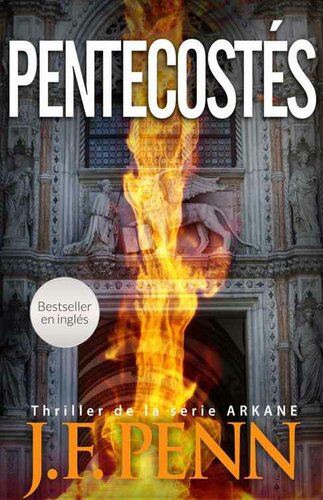
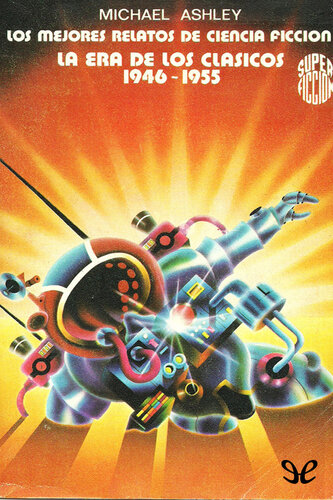

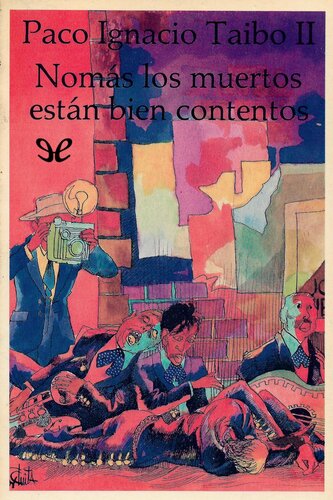
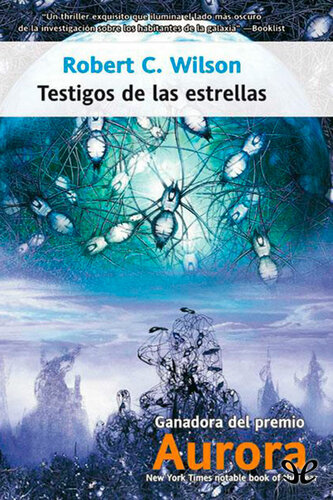
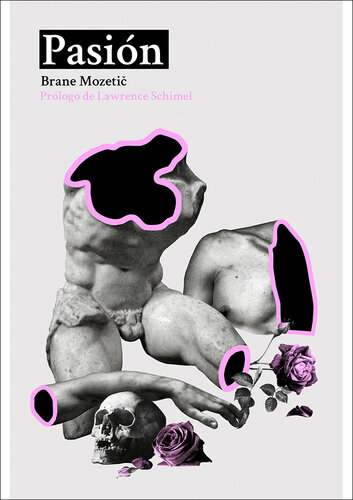

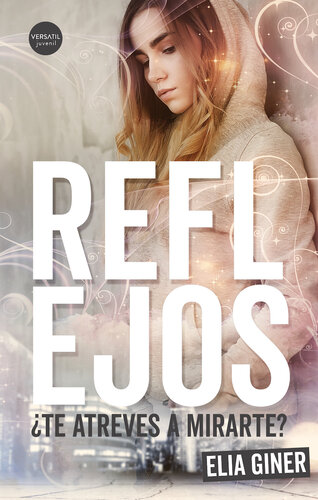
![descargar libro Cincuenta años no son nada [ed.: 2]](/imglibro/scar-hernndez-campan-cincuenta-aos-no-son-nada-ed-2.jpg)

